There are ten total classes, or vocations, to use in Dragon Quest 3 Remake. One class, Hero, is obviously unique to the Protagonist, and can’t be used by your additional party members, but the other nine can be mixed and matched however you’d like.
Each class has its own role in combat, and the key to building the right party is knowing the general role of each vocation and making the best combination of four that you can. Here’s a general breakdown of each class and what they do to help you make that choice.
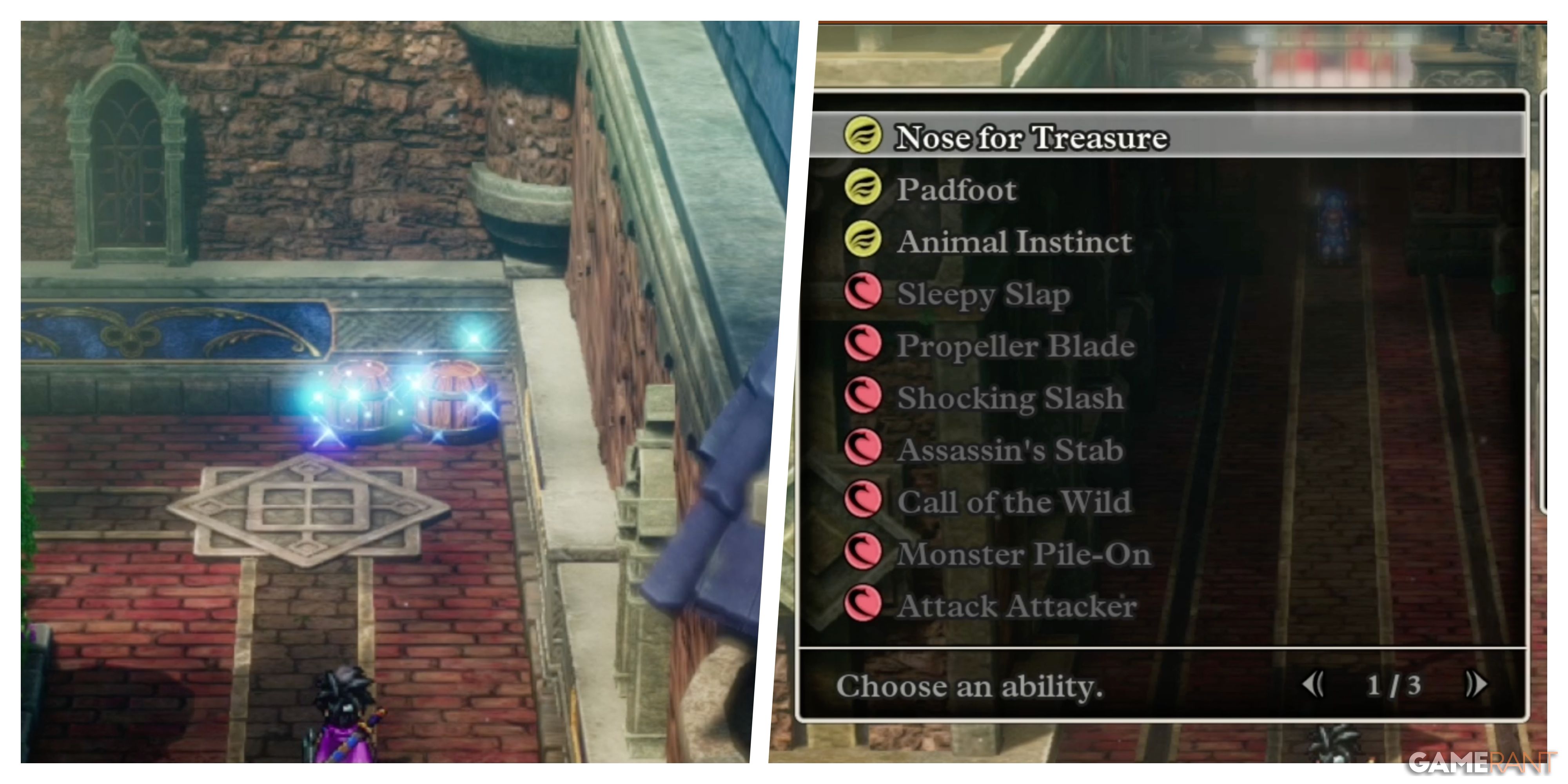
Related
Use These Skills to Find All Treasure in Dragon Quest 3 Remake
Here’s how to know if you’ve discovered all treasures in Dragon Quest 3 Remake’s dungeons.
Every Class / Job / Vocation In Dragon Quest 3 Remake
After you gain access to Patty’s Party Planning in the first town, you’ll be able to recruit three additional party members from eight other classes. There is the Sage Vocation, which is the secret ninth option that will require a good bit of work or preparation to get depending on which method you choose.
|
Class |
General Overview |
|---|---|
|
Hero |
The Hero has a little bit of everything, including physical slash attacks that do elemental damage, attack spells, healing spells, some support spells, and multiple utility spells that help in exploration such as Zoom. |
|
Warrior |
Warriors focus on doing physical damage and tanking incoming damage, making them ideal for being in a front spot in your Line Up. Warriors only have access to abilities, ranging from attacking first in combat, to further protecting themselves in combat. |
|
Mage |
Mages get access to a wide range of spells and no abilities. Mages learn multiple elements of spells, including single-target and multi-target spells. They do learn a few support spells that make them useful in debuffing your enemies when they aren’t dealing high damage with magic. |
|
Priest |
Priests focus almost purely on healing, with that being the majority of their spells. They do learn a good number of support spells that buff your party, along with just a few attack-all spells when they need to jump into offense. |
|
Merchant |
An overall weak class in combat, through their use, comes outside of combat aside from the party earning more gold from winning battles. Merchants can appraise items and call for items shops anywhere in the overworld, though sometimes it may just be easier to fast travel. |
|
Gadabout |
The Gadabout is not recommended to use unless you are aiming to get a Sage. In combat, they have very few options and sometimes won’t even take directions. While they may still do something that is useful, it will almost never follow your plan, and be a hindrance on your party more than anything. |
|
Thief |
The Thief can be a decent damage dealer that also can inflict status ailments on your enemies. They are also perfect for tracking down treasure in dungeons, making them just as useful outside of combat. |
|
Monster Wrangler |
The Monster Wrangler learns abilities from the monsters you find and rescue throughout the world. While this will take some extra work, the Monster Wrangler learns a range of attacks and support abilities, making them a very strong but also rounded vocation. |
|
Martial Artist |
Martial Artists are another offensive-focused vocation, learning a few damage-based abilities and not much else. They can do a lot of damage, even more than the warrior, though they will take on more damage than a warrior making them a bit more one-note in their role in the party. |
|
Sage |
The Sage is a mix of both the Priest and a Mage, learning all the spells from both vocations. It can be a double-edged sword since they only get one action, but they will always have the perfect spell to use no matter the situation and are well worth the effort to get, just make sure you have enough MP. |
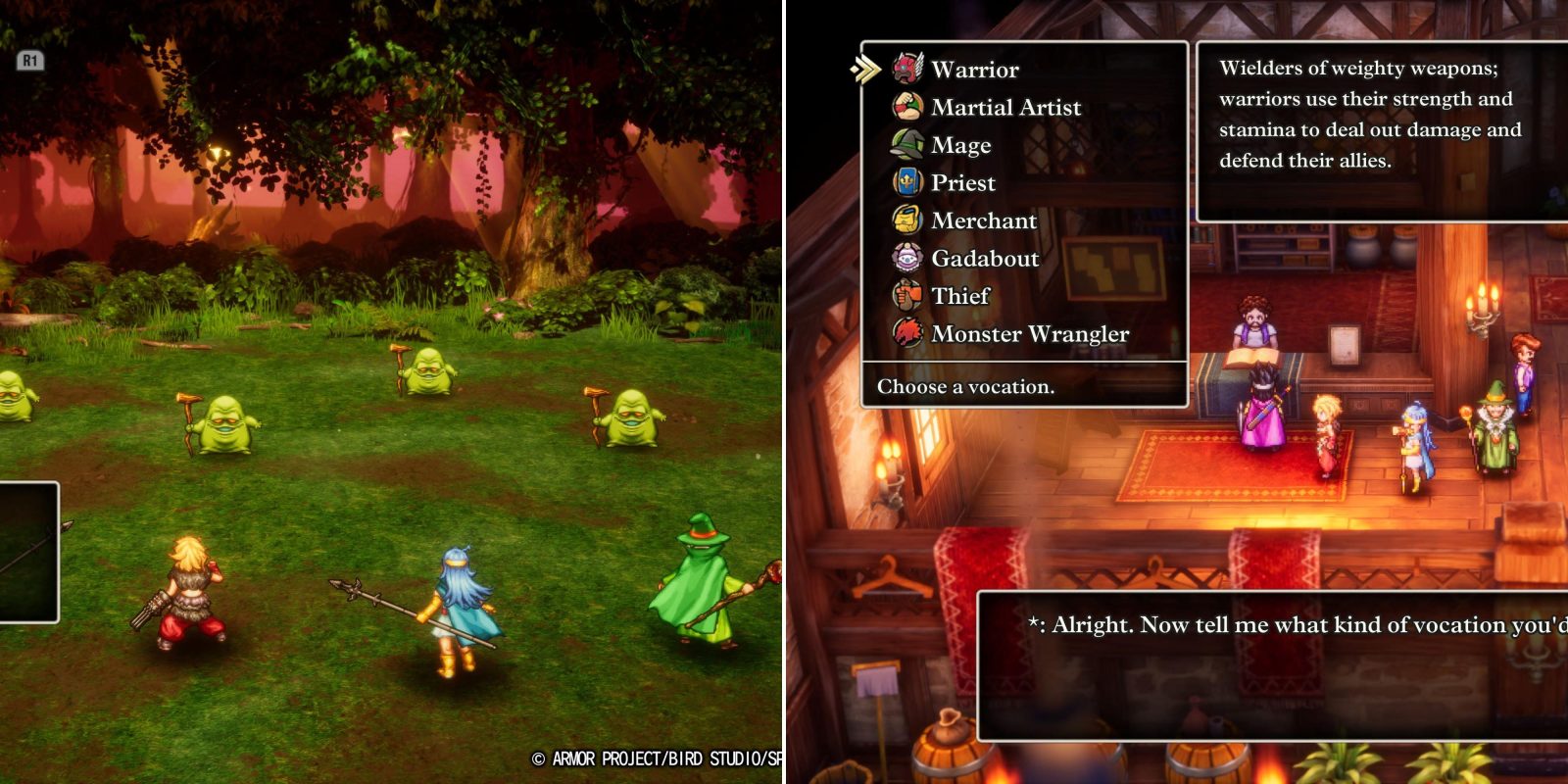

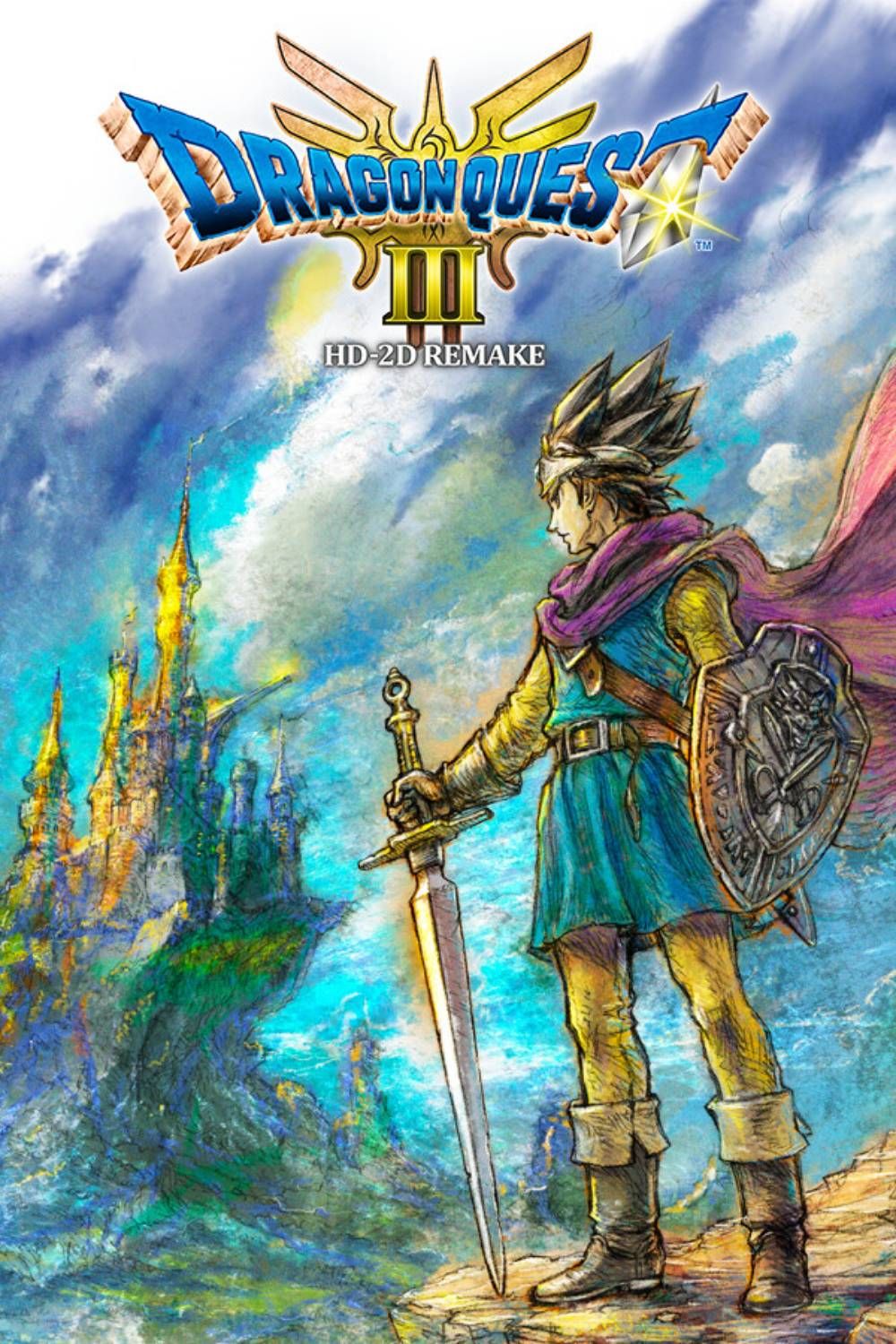



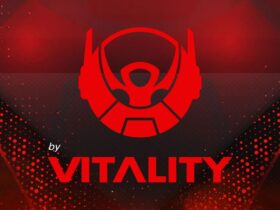

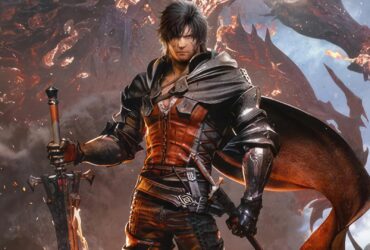
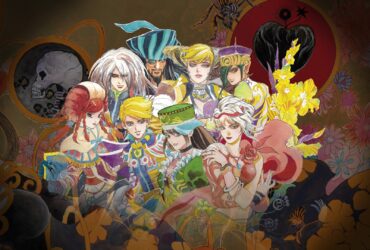
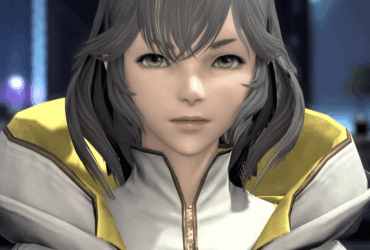

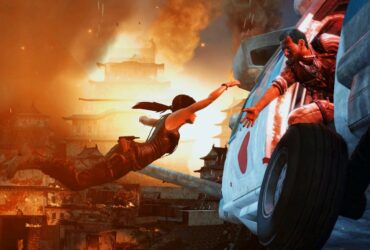
Leave a Reply